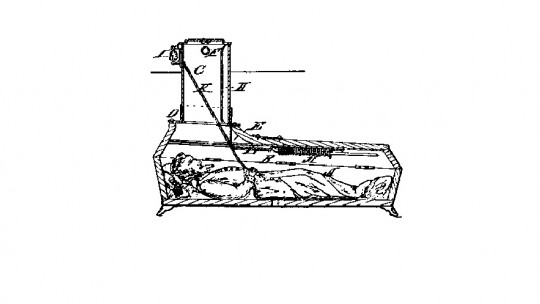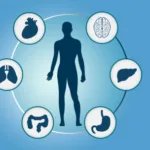
The use of antipsychotic medication within the field of mental health is one of the most used remedies when intervening in patients with some type of disorder or illness in which there are a series of psychotic symptoms. Likewise, it is increasingly prescribed for mood disorders and personality disorders.
However, sometimes the consumption of this antipsychotic medication is associated with certain side effects, which interfere with the proper functioning of the central nervous system. A strange disease associated with the effects of this medication is neuroleptic malignant syndrome which can lead to numerous complications in the body and even death.
Definition of neuroleptic malignant syndrome
Neuroleptic malignant syndrome is a rare condition caused by an adverse response to the effects of antipsychotic medication first, or other associated drugs second. This response may be caused by the action of the medication or by its sudden withdrawal.
This unusual syndrome is distinguished by causing complications such as dysautonomia, elevation of body temperature, changes in the state of consciousness and even causing death in those cases in which intervention is not done in time.
This syndrome tends to affect males and young people to a greater extent who are administered a prolonged-release neuroleptic As well as in Parkinson’s patients whose dose is moderated or the usual dopaminergic treatment is cancelled.
Symptoms
The symptoms associated with neuroleptic malignant syndrome tend to appear during the first three days after the patient begins treatment These symptoms begin with the appearance of a feeling of anxiety which precedes alterations in the state of consciousness.
The most characteristic manifestations of this syndrome are hyperthermia and muscle rigidity. Regarding hyperthermia, the person can suffer fevers of between 38.5º and more than 40º, this being considered an essential requirement for the diagnosis of this condition.
On the other hand, muscle rigidity can cause complications such as dysarthria or difficulty articulating sounds, swallowing problems and excessive saliva secretion. As well as hypoventilation and suffocation or breathing difficulties.
Other symptoms found in people who suffer from this syndrome include:
Causes of this syndrome
The main theories within the study of neuroleptic malignant syndrome point to the different effects that neuroleptics can have on the correct articulation of the pyramidal system and the hypothalamus.
The hypothesis most supported by the scientific and medical community proposes that a decrease in dopaminergic activity in the central nervous system can interfere with the correct functioning of the basal nuclei and the hypothalamus.
In addition, Other symptoms such as muscle rigidity, slowness of movement, mutism and shaking or palpitations are likely to be caused by instability or alteration of the dopaminergic system in the hypothalamus.
Finally, it has been observed that the administration of dopamine agonist drugs, such as bromocriptine, is effective in reducing the symptoms associated with neuroleptic malignant syndrome.
Diagnosis and differential diagnosis
There are a series of firmly established criteria for the diagnosis of this disorder. These criteria are classified into major and minor and the person must meet at least the three major criteria, or two major and four minor criteria.
Major criteria
The major criteria include hyperthermia, muscle tension, and an increase in the enzyme creatine kinase (CPK).
Minor criteria
Tachycardias, abnormal blood pressure, increased respiratory rate, changes in consciousness, sweating and leukocytosis.
However, there are discrepancies within the medical community when it comes to indicating the increase in creatine kinase (CPK) as a criterion of major importance. From this point of view, a series of alternative diagnostic criteria have been designed according to which for an effective diagnosis the person must suffer from these three symptoms:
Because the mortality potential of neuroleptic malignant syndrome is considerably high, It is necessary to rule out any other type of condition or disease as well as current as quickly as possible
For the differential diagnosis, the possibility that the person suffers from any of the following alterations must be ruled out:
Symptoms caused by the development of an infection in the central nervous system
Treatment
In cases in which the syndrome is caused by the effects of neuroleptics, it will be necessary, first of all, to withdraw the medication and provide supportive care both to lower body temperature and to reverse arterial hypotension by restoring fluids. and the use of vasoactive medications.
In most cases in which the syndrome is detected in time The supportive intervention is effective and is sufficient for the syndrome to subside and lead the patient to recovery without any type of sequelae
Prognosis and possible complications
At the time the medication is suspended and treatment for neuroleptic malignant syndrome begins, the evolution of symptoms should be positive, that is, the patient should progressively improve.
However, there are a relatively common series of complications that could make this recovery difficult. These difficulties include:
- Renal insufficiency
- Respiratory failure or pulmonary embolism
- Setbacks such as liver or heart failure or seizures
Despite the severity of the symptoms and possible complications The person can overcome the disease as long as it is treated in time Otherwise, the probability of death increases considerably, with the most common causes of death being heart failure, pneumonia, pulmonary embolism, sepsis and hepatorenal failure.








